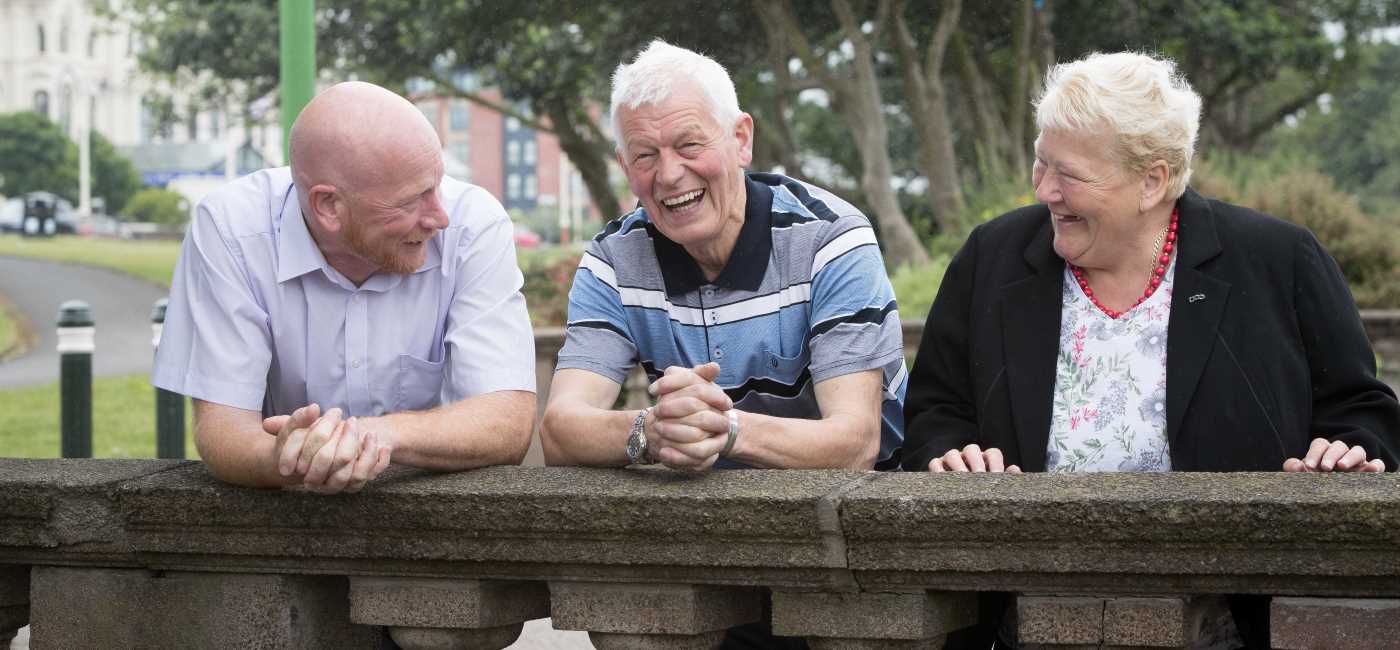Getting ready to socialise again after losing a partner
Updated: 28 Jan 2025
Whatever your circumstances, the grief of losing a loved one can be overwhelming and all consuming. Each situation, and each person’s reaction, will differ. Just because you don’t grieve in the same way, or in the same timeframe as other people you know, doesn’t mean the way you grieve isn’t right.

For the first few days, weeks or months after their death, you may be too preoccupied to think about the long-term impact of the changes to your circumstances.
It might not be until everyone has gone back to their normal routine that you feel lonely for the first time.
Don’t worry if you feel fine one minute, then like you’re not coping the next, this is entirely normal and all part of the grieving process. The hardest days to deal with can be the ‘firsts’ – the first Christmas, birthday, anniversary… Learning to live without someone takes time.
It’s not only bereavement that can cause feelings of loss and grief – a partner’s development of dementia, or move into a care home, can too.
I tried to socialise three months after my partner passed on, but it was too soon. However, from my friends’ experiences, I know that varies from person to person. Oddfellows member
The need for friendship
After the death of someone close, it is entirely normal to feel like staying in and to not socialise. It’s also normal if you want to socialise. Likewise, you might not want to go to places, or see people who had a connection with you as a couple. All these feelings are completely natural.
Lots of scientific studies show the same things – friends are good for us. Having strong social connections helps guard against depression and reduces stress. Sustaining friendships can seem hard after a loss, but over time the people around you will be a crucial part of the grieving mechanism.
I came to the conclusion that I could be bitter, angry, unsociable and that no one would want to know me, or I could try and join in, even though I didn’t feel like it. Oddfellows member
If you never go out, keep turning offers down, or stop speaking to those around you, friends may drift away. You may feel that you want to isolate yourself, but socialising with people you know, no matter how hard, will help you cope.
Taking the first steps
Over time you may find that you want to get back out and socialise. However, when you’ve not socialised for a while, taking those first steps may feel intimidating.
You might find it hard to face going out, or think your friends have moved on. If you’ve always done things as a couple, you might not feel quite so confident on your own. You may feel envious of other couples, or feel like you can’t cope with other people’s sympathy. These feelings are all normal.
After taking your own time to grieve, decide to do things you enjoy, with others or on your own. Join clubs for social contact, go on holiday, immerse yourself in life and what is going on around you. Oddfellows member
Our Care and Welfare Officer Andrea Libman shares her advice on how to make those first steps to joining in again feel easier:
Short and sweet: Sometimes long events might take a lot out of you, so why not let friends know you’d like to see them, but may leave early?
What’s on: If you don’t have any friends or family around you, there are befriending organisations such as us (the Oddfellows), U3A and other local groups that you can join. A local club with shared interests, such as knitting, woodwork, bridge or walking will provide a common talking point, and a bit of a distraction.
Keep it manageable: If you find it overwhelming to go out in groups, ask close friends if you can see them one or two at a time. They will understand and be happy to see you.
Get local support: Why not join a local bereavement support group? You may feel that your friends and family don’t want to talk about your loss, so talking to people who have been through the same experiences can often be easier.
Plan ahead: When you start going to a new group, it can be hard if you don’t know anyone there. Ring ahead – you’ll get an idea of what to expect and they may be able to ‘buddy you up’ with a friendly regular.
Support at home: If you don’t feel like you can face going out right now, why not try ringing a befriending service such as The Silver Line? Or chatting to an online support group?
If you are an Oddfellows member, have you contacted our Care and Welfare team for support? We are here to help you through difficult times.
Oddfellows friendship groups
We're always ready to welcome new members to our local Oddfellows friendship groups. You can find your nearest by using our Branch Finder, or use our Events Finder to search for social events and activities happening near to where you live.
Give the Oddfellows a try. There's no obligation to join. Contact us to request your free information pack and local events diary.
Read more advice on making friends and building social confidence in our friendship guides section.
DISCLAIMER: Links to third-party sites do not constitute an endorsement by the Oddfellows and use of the advertised products and services is entirely at your risk. The Oddfellows does not accept any liability or responsibility for any third party material on other websites.




